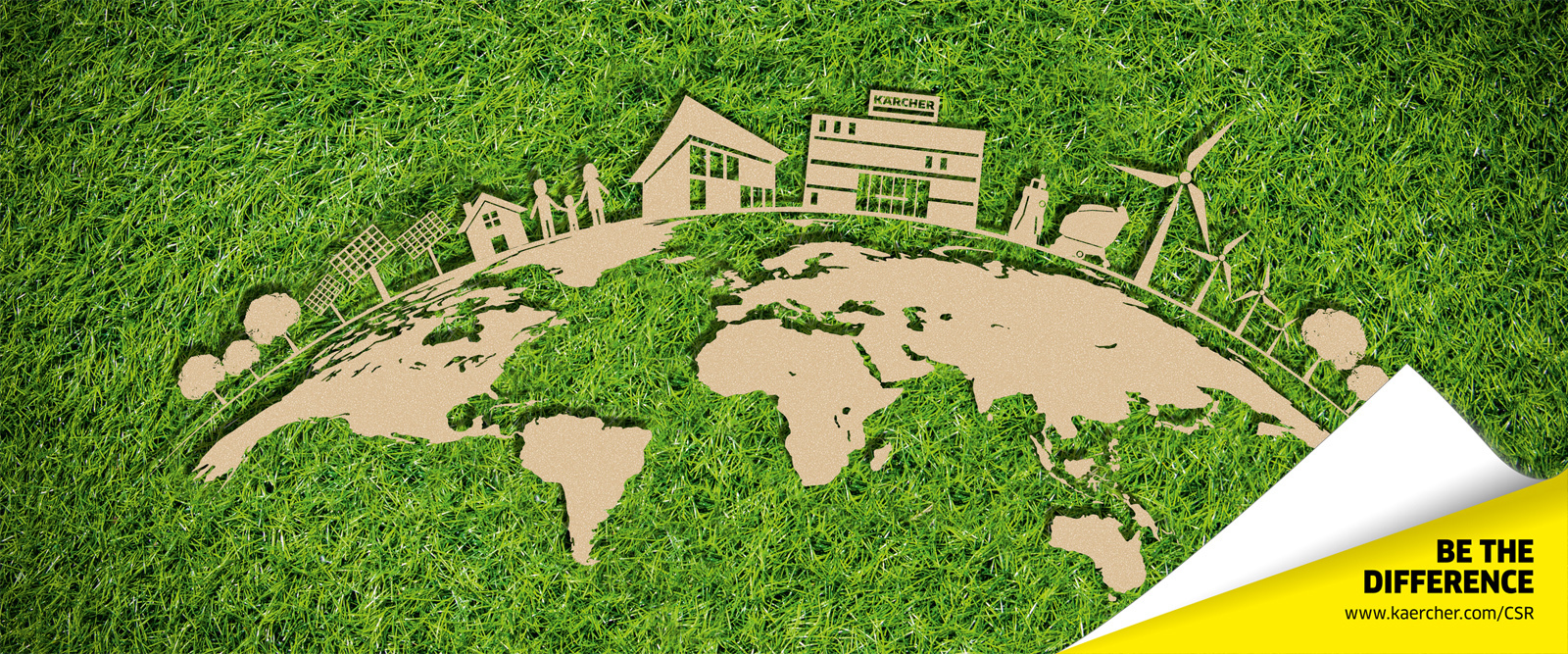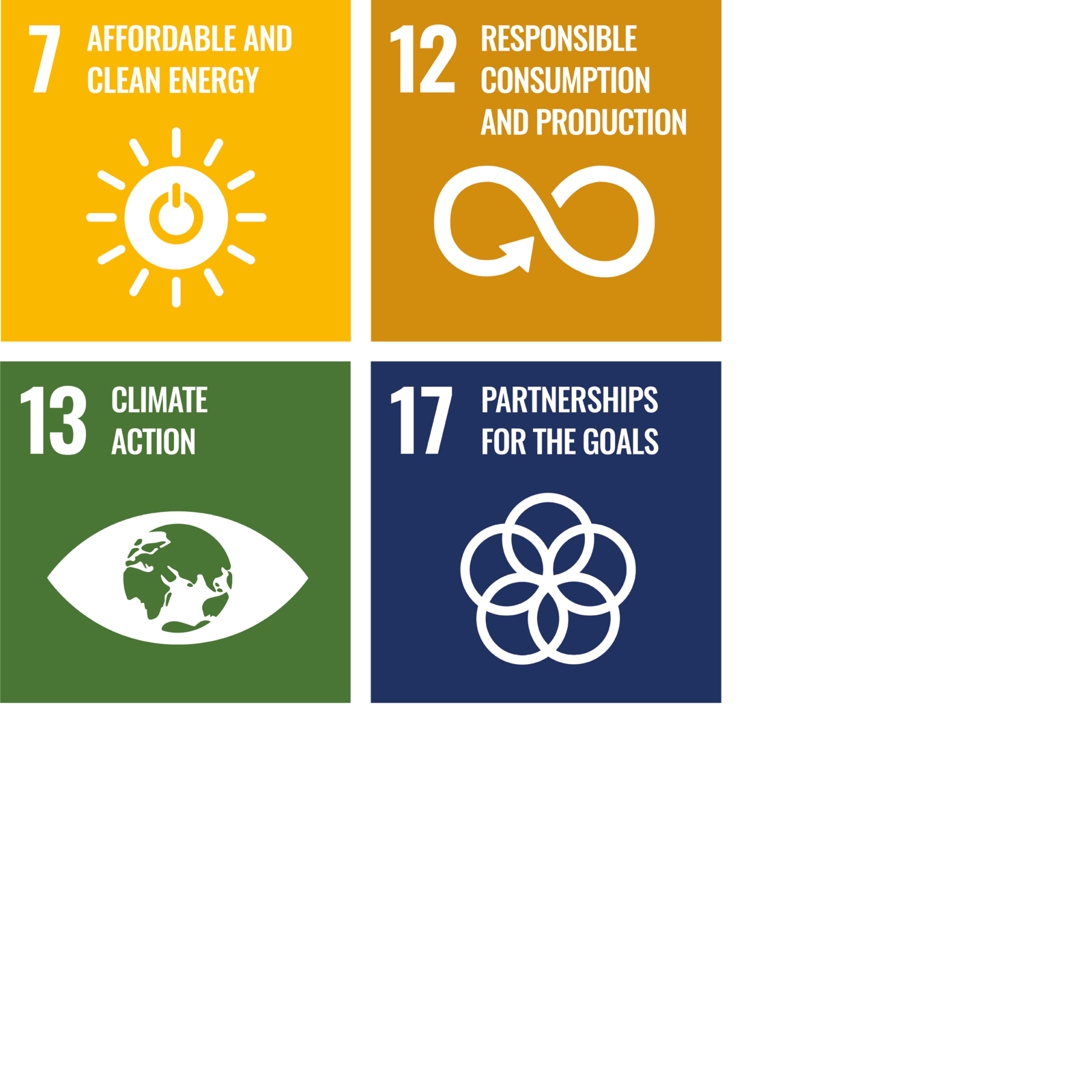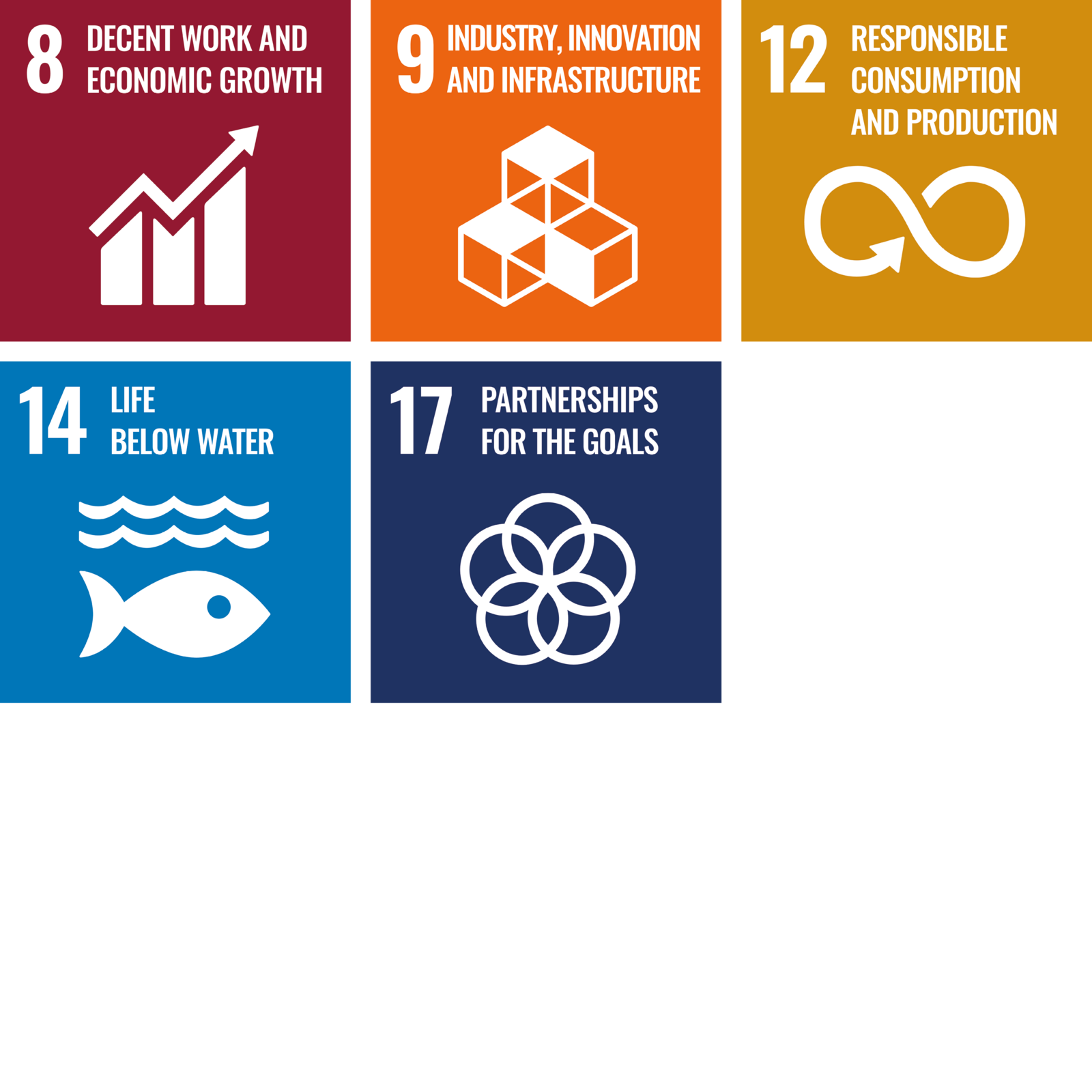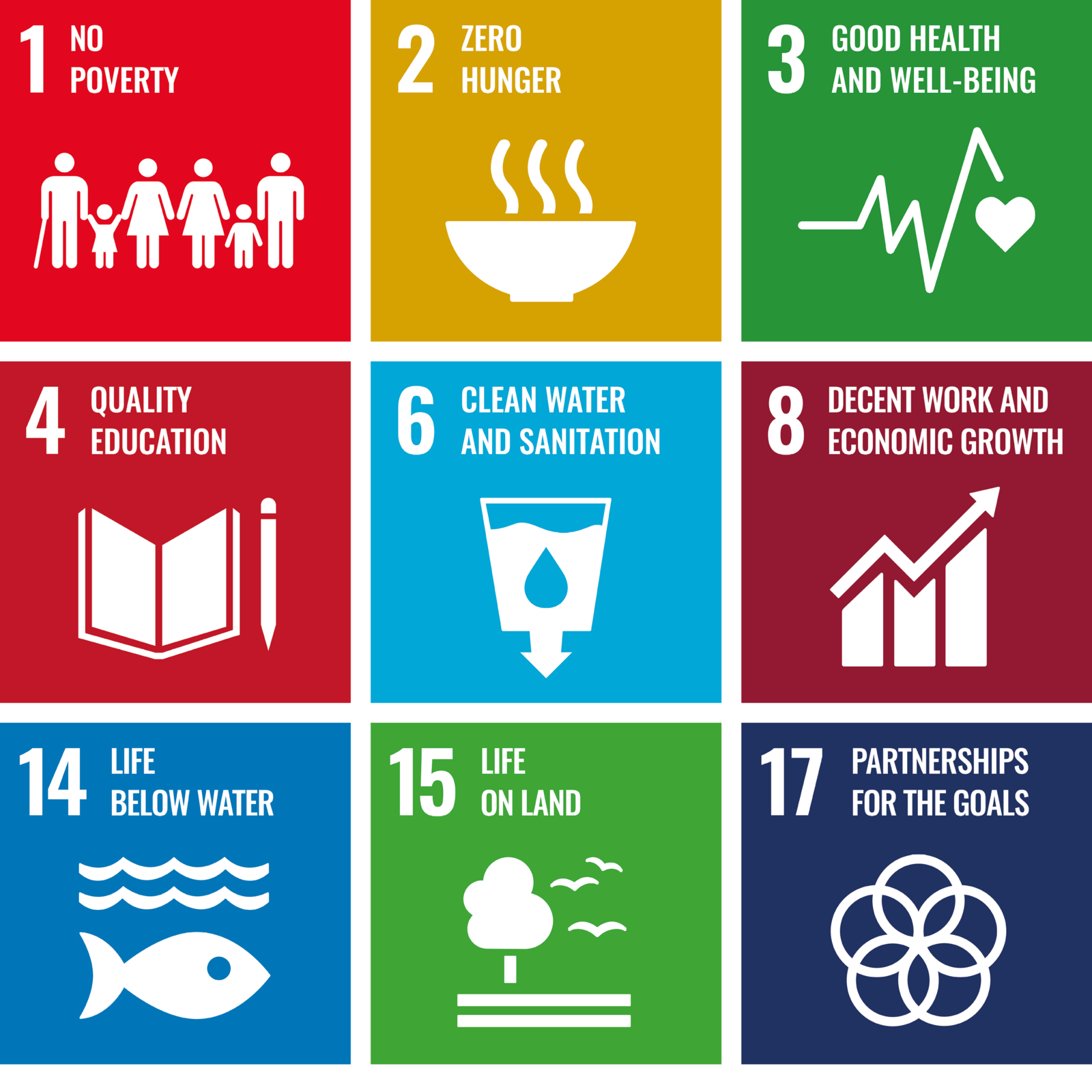Sustainability Goals 2025
Our measures are aimed at reducing emissions in production, recycling of raw materials and a reduction in plastic packaging. Sustainability is deeply embedded in the global supply chain. When it comes to social and societal issues, we concentrate on preserving values.

Targets for 2025 at a glance
Environmental friendliness and climate protection are a fundamental part of our actions. For years now, we have been continuously setting ourselves new targets to systematically make our company more efficient and resource-conserving and to fulfil our role as a social stakeholder. With our targets for 2025, we are now taking the next step towards the future.
With these targets set in 2020, we also play our part in achieving the 17 Sustainable Development Goals of the United Nations (UN). These Sustainable Development Goals (SDGs) represent a global standard for the priorities and targets of sustainable development up to 2030 at economic, social and ecological level.
For us as a company, the SDGs offer a good framework on which to base our sustainability targets. In this way, with our core business we can play a role in overcoming globally relevant challenges. We have brought together our targets in three initiatives: "Zero Emissions", "Reduce, Reuse, Recycle" and "Social Hero".
Zero Emissions
By 2025, Kärcher will reduce the real scope 1 and scope 2 emissions of its production and logistics locations worldwide by 21% compared with the base year of 2020. By 2030, this will be reduced by a further 21%, making the absolute reduction 42%: We are saving energy and using sustainable energy sources to reduce our carbon footprint. To this end, Kärcher has joined the Science Based Targets initiative (SBTi), committing to rapid emissions reductions across the whole company in line with climate science. The initiative is a collaboration between CDP, UN Global Compact, the World Resources Institute (WRI) and World Wildlife Fund (WWF), and is one of the commitments of the We Mean Business Coalition.
By 2025, Kärcher will expand a management system for its scope 3 emissions and make the carbon footprint of its products transparent: As part of our participation in the SBTi, we are committed to expanding the remit of our emissions recording to include upstream and downstream activities and developing targets for reducing them – because sustainability for Kärcher goes beyond our factory gates. We are already reducing emissions in transport logistics by continually optimising our transport routes. Our factories globally already acquire 75% of purchasing volume from regional suppliers, located less than 1000 km from the production site.
Since 2021, all Kärcher factories worldwide have been using green electricity for production: The power we need for our production comes completely from renewable energy sources. Green power generates significantly less CO₂ emissions than electricity from non-renewable energy sources, meaning we have a strong influence here in our factories as the largest electricity consumer in the company. From 2021 to 2023 we supported climate protection projects to compensate for unavoidable CO₂ emissions. Since 2024, we have been using these resources for more sustainability directly at our production sites where emissions are generated: for green electricity from in-house and external production and for increasing energy efficiency. Many of our factories are already equipped with LED lighting and photovoltaic systems. Our largest facility in China produces 980,000 kWh of power per year on a floor area of 9,000 m². At the headquarters in Winnenden, for example, we are using a closed-loop material cycle by transforming defective wooden single-use pallets into a heating system for the building.

Reduce, Reuse, Recycle
By 2025, we will optimise the sustainability of all product packaging: We are improving the stability of our products in order to reduce the use of plastic packaging to a minimum or eliminate it completely. We are gradually replacing disposable packaging materials made from primary plastics with plastics made from recycled materials. We are also replacing non-recyclable packaging with alternatives - the packaging inlay of our FC 7 hard floor cleaner, for example, is made from pulp, a type of paper maché, instead of styrofoam. In the EU, our SC 3 Upright EasyFix steam cleaners have an inlay made from pea starch. The material is a waste product of the food industry and is completely biodegradable.
By 2025, selected consumer and professional products target a recycling plastic content of up to 50%: We are reducing and systematically replacing the amount of virgin plastic in our products. To manufacture the spray lances for our pressure washers, we have in part switched to recycled plastic and use nylon 66. The recycled material used is extracted from fabric in returned airbags and material left over from their production process. Our T11/1 Classic HEPA Re!Plast dry vacuum cleaner has a recycled plastic content of 60*%. This way we close the loop by using recycled materials.
*all plastic parts, excluding accessories
Since 2020, we support the reduction and reuse of ocean plastic: We collaborate with the One Earth One Ocean (OEOO) environmental organisation to reduce the pollution caused by ocean plastic. OEOO pursues the goal of ridding the world's waters of plastic waste, sorting it by type and then processing it. In addition, OEOO is involved in the areas of oil purification, microplastics as well as in research, education and documentation on the topic of water pollution. We support water purification and circular economy projects as well as OEOO's technical innovations. Together we organise the Kärcher Cleanup Day worldwide, where employees participate in cleaning activities of regional waters.
By 2025, we target a zero plastic waste pilot production: We want to reduce the plastic packaging waste from local suppliers to zero, and thus make our headquarters the model for further production sites. We are already implementing this approach with our internal goods transport. For example, in Winnenden, Germany certain components are being packed in multi-use boxes instead of in foil for transportation, which saves 3,000 kg of foil each year.
By 2025, sustainability will be an integral part of new business models: We review and implement business models for Kärcher such as sharing, refurbishing, services and recycling. We are exploring new approaches to sustainable product development with the Soilkind kitchen composter. The device, developed in-house at Kärcher, turns kitchen waste into nutrient-rich compost in just 48 hours thanks to its sophisticated technology. With our digital products, we can help to significantly reduce material waste in sanitary rooms thanks to sensor-based cleaning. We also cooperate with start-ups that, for example, offer sharing stations for product rentals in larger residential complexes.

Social Hero
By 2025, our social commitment will focus on preserving values: Clearly defined topics ensure that all of our social commitment activities around the world share a common purpose. In all three areas – donations and sponsorship, long-term cooperation and employee commitment – we take our role as a social stakeholder seriously and are therefore dedicated to preserving values. These may be cultural values, as is the case with our cultural sponsorship, or family values, like our cooperation with SOS Children's Villages. Kärcher has supported SOS Children's Villages in 44 countries since cooperation began in 2011.
By 2025, we will establish a proactive supplier risk management system for sustainability: We analyse and systematically improve the social and environmental impact of our direct suppliers. To achieve this, we establish sustainability as one of the most important deciding factors for selecting new suppliers and also assessing current suppliers. As part of this strategy, we utilise global audits and a comprehensive pool of data, as sustainability and punctual delivery go hand in hand at Kärcher.





